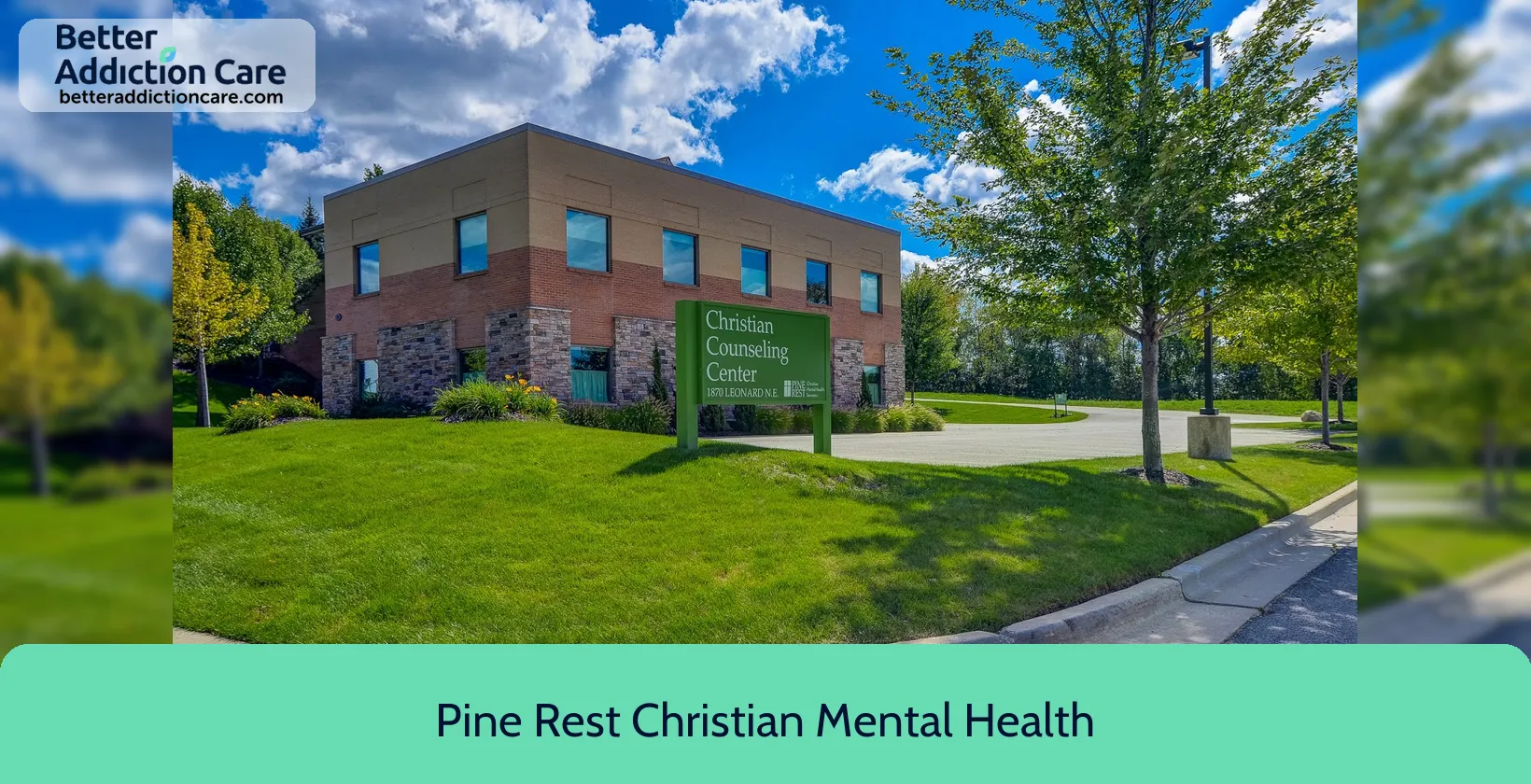Pine Rest Christian Mental Health Services - Christian Counseling Center
Overview
Pine Rest Christian Mental Health Services - Christian Counseling Center is a mental health treatment center for people seeking treatment near Kent County. As part of their treatment modalities for recovery, Pine Rest Christian Mental Health Services - Christian Counseling Center provides couples/family therapy, group counseling, and cognitive behavioral therapy during treatment. Pine Rest Christian Mental Health Services - Christian Counseling Center is located in Grand Rapids, Michigan, accepting cash or self-payment for treatment.
Pine Rest Christian Mental Health Services - Christian Counseling Center at a Glance
Payment Options
- Cash or self-payment
- Medicaid
- Medicare
- State-financed health insurance plan other than Medicaid
- Private health insurance
Assessments
- Screening for tobacco use
- Comprehensive mental health assessment
- Comprehensive substance use assessment
Age Groups
- Young adults
- Children/adolescents
- Adults
- Seniors
Ancillary Services
- Court-ordered outpatient treatment
- Suicide prevention services
Highlights About Pine Rest Christian Mental Health Services - Christian Counseling Center
6.68/10
With an overall rating of 6.68/10, this facility has following balanced range of services. Alcohol Rehabilitation: 8.00/10, Drug Rehab and Detox: 6.00/10, Insurance and Payments: 6.00/10, Treatment Options: 6.73/10.-
Alcohol Rehabilitation 8.00
-
Treatment Options 6.73
-
Drug Rehab and Detox 6.00
-
Insurance and Payments 6.00
Accreditations
The Joint Commission:

The Joint Commission accreditation for addiction and behavioral health is a prestigious recognition signifying a facility's commitment to delivering high-quality care and safety for individuals dealing with substance abuse and mental health issues. It involves rigorous evaluations and assessments, ensuring patients receive evidence-based treatment and exceptional care. This accreditation demonstrates a facility's dedication to continuous improvement and ethical practices, building trust among patients and healthcare professionals seeking top-tier addiction and behavioral health services.
Treatment At Pine Rest Christian Mental Health Services - Christian Counseling Center
Treatment Conditions
- Alcoholism
- Mental health treatment
- Substance use treatment
- Co-occurring Disorders
Care Levels
- Outpatient
Treatment Modalities
- Couples/family therapy
- Group counseling
- Cognitive behavioral therapy
- Telemedicine/telehealth therapy
- Smoking/vaping/tobacco cessation counseling
Ancillary Services
Languages
- Sign language services for the deaf and hard of hearing
Special Programs
- Persons 18 and older with serious mental illness (SMI)
Contact Information
Read our Most Recent Article About Drug Addiction
DISCLAIMER: The facility name, logo and brand are the property and registered trademarks of Pine Rest Christian Mental Health Services - Christian Counseling Center, and are being used for identification and informational purposes only. Use of these names, logos and brands shall not imply endorsement. BetterAddictionCare.com is not affiliated with or sponsored by Pine Rest Christian Mental Health Services - Christian Counseling Center.









